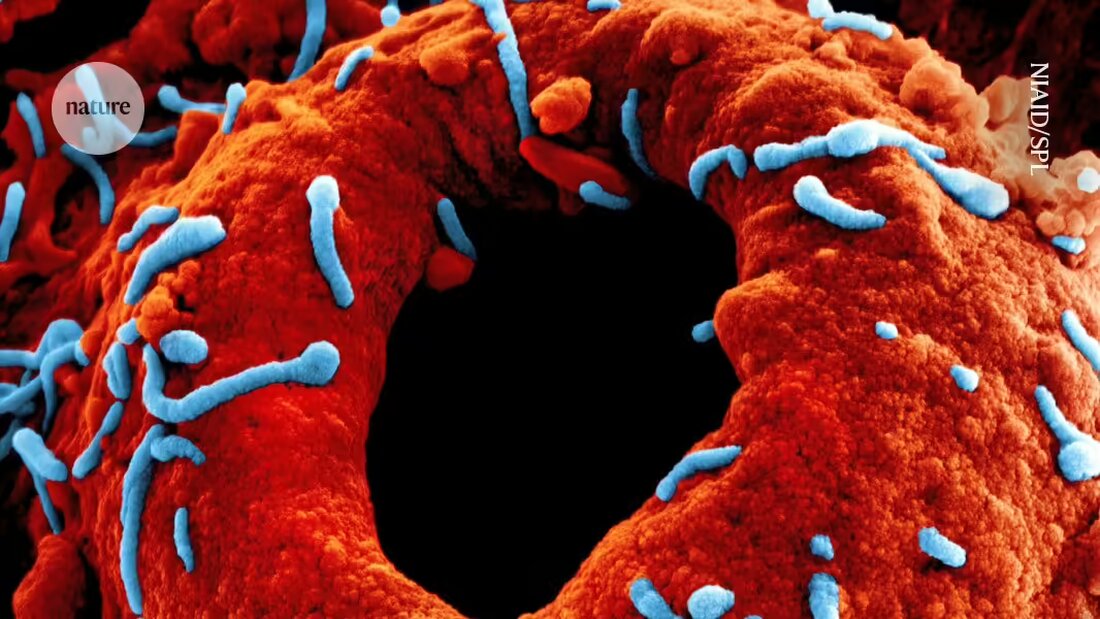Deadly Marburg virus: Scientists work on vaccine tests during outbreak
Scientists are urgently testing vaccinations against the deadly Marburg virus in Rwanda, where 27 cases and 9 deaths have already been reported.

Deadly Marburg virus: Scientists work on vaccine tests during outbreak
Researchers are racing against time to deploy vaccines and treatments against a deadly virus that is... Rwanda has broken out.
As of September 30, the central African country has recorded 27 cases and 9 deaths from the Marburg virus, a highly deadly relative of the Ebola virus, which also causes hemorrhagic fever, with most cases occurring in healthcare workers Kigali, the country's capital, be reported.
There are currently no approved therapies or vaccines against Marburg virus. If the current outbreaks continue — most are small and quickly contained — health officials and researchers hope to collect valuable data on the safety and potential effectiveness of vaccines and treatments.
On September 30, the World Health Organization (WHO) hosted a conference call in Geneva, Switzerland Rwandan scientists, appointed by the government to conduct possible vaccine and treatment testing, as well as members of the Marburg Virus Vaccine Consortium (MARVAC), a group of companies, nonprofits and researchers, according to a WHO spokesman.
Ring vaccination
General plans for the studies were drawn up following a 2023 Marburg virus outbreak in Equatorial Guinea that caused 12 deaths among 17 confirmed cases and 23 additional probable fatal cases. However, no experimental drugs were tested during this outbreak.
Ira Longini, a biostatistician at the University of Florida in Gainesville and a member of MARVAC, says that if the outbreak in Rwanda continues, the plan is to test at least one vaccine as part of a strategy called ring vaccination. This approach, which demonstrated the effectiveness of an Ebola vaccine in Guinea during the 2014-2016 West Africa outbreak, involves immunizing contacts of an infected individual.
A WHO ethics committee previously had plans for the vaccine test, as well as treatments like that antiviral drug Remdesivir, which was tested against Ebola and COVID-19, approved. In addition, were monoclonal antibody treatments, which showed promise in animals, were approved. The WHO spokesperson explained that the next urgent step is to approve the trials in Rwanda.
Several vaccines against Marburg virus are in various stages of development. The most advanced candidate is a candidate from the Sabin Vaccine Institute in Washington DC who is using a modified chimpanzee adenovirus to give cells instructions to make a Marburg virus protein. A study of 40 healthy participants from the US found the vaccine was safe and produced an immune response against the virus in most people 1; a larger study in Uganda and Kenya is underway.
A spokesman for Sabin says the group is working with the Rwandan government, but did not say how many doses of the vaccine are currently available. In 2023, a WHO advisory committee named the Sabin vaccine as the best candidate for testing during a Marburg virus outbreak.
Fast production
A similar vaccine being developed at the University of Oxford, UK, has also been named as a priority for testing during a Marburg outbreak. Teresa Lambe, a vaccinologist at Oxford who is leading the development of the Marburg vaccine, says the vaccine has so far proven safe in the few participants who have received it in an ongoing trial in Britain.
Mark Feinberg, executive director of the International Aids Vaccine Initiative in New York City, says no doses of the Marburg vaccine his organization is developing — similar to an approved Ebola vaccine — are currently available, but production is scheduled to begin this week.
“The Rwandan health authorities are exceptionally competent, and I hope they will be able to quickly contain this outbreak,” Feinberg added. “The risks of the outbreak spreading to neighboring countries are not insignificant and the consequences could be serious.”
The fact that clinical trial plans are in place and other preparations have been made increases the chances that Marburg vaccines and treatments will be used in Rwanda, says Nancy Sullivan, a viral immunologist at Boston University in Massachusetts. However, it is likely that data on Marburg vaccines and treatments will need to be collected during multiple outbreaks.
“The idea now is to just move forward and not worry about the outbreak ending,” Sullivan adds. “It’s just a part of the overall study.”
-
Hamer, M.J. et al. Lancet. 401, 294–302 (2023).

 Suche
Suche
 Mein Konto
Mein Konto
